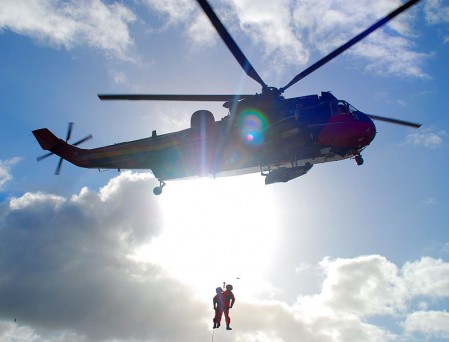
In late July, Shane Bauer, Josh Fattal and Sarah Shourd set out for a hike in the mountainous border region between Iraq and Iran. The three hikers had been warned not to hike in this area, as the border between the two countries is not clearly marked. The hikers went anyway – and they were promptly detained by Iranian border guards when they unintentionally crossed into Iran.
The trio’s recklessness played into the hands of the Iranian government. The three Americans have become a kind of cheap trump card for Tehran, which claims that the hikers are ‘spies’ sent by the reviled US. The incident gave the Iranian government a convenient pretext to distract from domestic problems and divert popular attention toward a common outside enemy.
Meanwhile, there is the story of the adventurous British yachting couple, Paul and Rachel Chandler, who set out on a dangerous voyage in the pirate-infested waters of East Africa. They had also been warned. The manager of the yacht club in the Seychelles from where the Chandlers disembarked had strongly advised them against undertaking their planned journey to the African mainland due to pirate activity. They went anyway. And the pirates caught them.
For the pirates, the two Brits are a valuable prize – they are citizens of a wealthy country in exchange for whom a lucrative ransom can be expected.
Adventure tourism is in vogue. Perhaps life has become too predictable, too mundane, too pedestrian inside the protected cocoon of western consumer societies. So at least in our spare time, some of us like to go for the real adventure and smell real danger.
But what if something goes wrong? What if you get caught or kidnapped?
No worries. Your government will do everything within its power to bail you out.
People these days have the means to go almost anywhere in the world – from the lawless regions of Somalia and Yemen to the non-demarcated border areas of closed societies like those of Iran and North Korea. And due to the 24-hour news cycle and the internet, word will get out instantly if an adventurer gets kidnapped by criminals or caught by a hostile government.
Friends and families of the victims can use new media channels to keep the issue alive, putting ever more pressure on governments to liberate the hostages or prisoners, no matter what it takes. Just look at the elaborate and touching website put together by the friends of the three ill-fated hikers. And the evening news for the past week has constantly reminded us of the fate of the Chandlers, as if there were no other humanitarian tragedies on which to report.
At the same time, instant communication tools and the global media play into the hands of kidnappers and rogue states. Taking western hostages or prisoners in today’s media age can be an easy and rewarding way of extorting ransoms or forcing political concessions from governments.
The French government has started to address the problem of reckless adventurism. The French Foreign Ministry has proposed a new law obliging French citizens to foot the bill for rescue operations from a war zone or hostage situation. The law would only apply to leisure seeking tourists who knowingly put themselves in harm’s way.
Private health insurance companies have been doing the same for decades. My insurance company, for example, will not pay if I get hurt in dangerous adventure sports like bungee jumping or paragliding. Neither will it bail me out if I traveled to war zones. Or attempt suicide.
But the issue here is not just financial. What if a government has to make political concessions to get adventure tourists released from a prison in a hostile country? Should the national interest of an entire country be put on the line to bail out reckless tourists?
And, most importantly, what if a planned rescue operation puts the rescuers in harm’s way? Is a government justified to put the lives of its soldiers on the line to rescue tourists who knowingly put themselves in danger? As we know, hostage rescue operations are often very risky and dangerous for rescuers.
Yes, governments have an obligation to protect their citizens abroad. This obligation is entrenched in international law. But how far is a government to go when gross negligence on the part of its citizens is in play?
Are we living in an age where we no longer need to take self-responsibility for reckless actions? Have the stakes for screwing things up in life become so low that taking what might be considered an ‘excessive risk’ is no longer really such an excessive risk knowing that there is always a government able and willing to come to our rescue?
Besides bailing out our banks, do governments now also have to play Superman?

